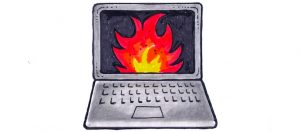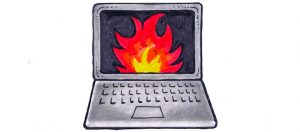
By Kate Hodal
The Guardian (8/8/19)
Nearly half the world’s people are living in countries where their freedom of speech and right to privacy are being eroded, researchers have found.
“Strongman” regimes seeking to squash voices of dissent and solidify political power are increasingly monitoring citizens through technology, cracking down on protests and jailing journalists, according to a ranking of 198 countries on issues including mass surveillance and data privacy.
The report, launched on Thursday by global risk analysis company Verisk Maplecroft, found that about 3.38bn people, or roughly 46% of the global population, live in countries deemed to be at “extreme risk” in relation to right to privacy and freedom of expression.
Autocratic rule, increased media restrictions and use of mass surveillance affect almost half global population, researchers find.
Out of 198 countries, 58 were categorised as “extreme risk” when it came to citizens’ right to privacy, a jump of 9% from 2017 levels.
The same number of countries were ranked as “extreme risk” in the report’s freedom of opinion and expression index. The rise from from 52 in 2017 to 58 in 2019 represents an increase of 11%.
However, just 28 countries were identified as “extreme risk” on the democratic governance index, which identifies and measures authoritarian regimes.
The figures represent a “worrying” trend in the global erosion of rights and freedoms that goes “beyond the most hardcore autocratic states”, the report says.
“This tells us that more countries are now prioritising control of the public narrative and the quashing of public dissent above the rights of citizens.”
The report highlights Cambodia, where national elections last year prompted Hun Sen, who has been the country’s prime minister for 34 years, to crack down on “fake news” by fining offenders and jailing them for two years. Hun Sen has also strangled dissenting speech online by extending cyber surveillance, and ordered all internet traffic to be transmitted through a state-owned data management centre.
China had the lowest aggregate score for both freedom of expression and right to privacy, according to the report. Home to one-fifth of the world’s internet users, the nation already faces the most severe internet restrictions. However, the study warns of the impact the 2020 rollout of the controversial social credit system – a mass surveillance and AI programme that gives citizens a social credit score based on their social, political and economic behaviour – could have, both within and beyond the country’s borders.
In Turkey, more journalists were jailed last year than in any other country. …
*****
Growing Number Of Republicans Now Favor A ‘more autocratic type of leader’ Under Trump
By
From his vow to defy all subpoenas issued by Democrat-led committees in the House of Representatives to his desire to force funding for a U.S./Mexico border wall via an emergency declaration, President Donald Trump has made it abundantly clear that he doesn’t think much of checks and balances or congressional oversight. And in an August 7 column for the Washington Post, journalist Aaron Blake explains why many Republican voters appear to see things the same way.
“Conservative Republicans have moved sharply toward embracing a more powerful chief executive with fewer checks and balances,” Blake explains. And he cites a new poll by Pew Research as evidence.
According to the poll, Blake notes, the number of Republicans who “favored fewer checks on the president” went from 14% in 2016 to “43% of all Republicans” in 2019. …

